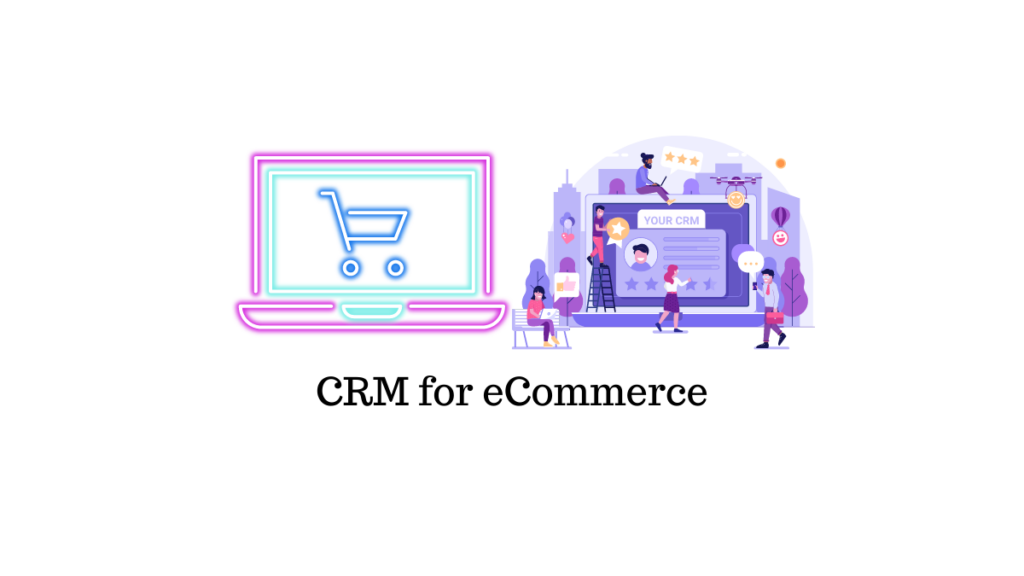
Key Takeaways
- CRM in eCommerce entails analyzing customer data to understand their preferences and behavior better.
- Improved customer experience, reduced time, increased sales & marketing, and many more are the advantages of CRM in eCommerce for 2023.
- 60% of companies claim that utilizing a CRM platform increases their productivity.
In today’s competitive eCommerce industry, businesses must focus on building and maintaining strong customer relationships.
That’s where Customer Relationship Management (CRM) comes in.
CRM is a powerful tool that allows businesses to manage customer interactions and relationships, which can be especially useful in eCommerce.
According to recent stats, 60% of companies claim that utilizing a CRM platform increased their productivity.
And by implementing CRM technology, sales professionals’ quality of communication can improve by 57%.
Isn’t it catchy? So, without further ado, let’s dive in and find the advantages of CRM in eCommerce for you!
10 Advantages of CRM in eCommerce

Reduce time
Time is money, and in eCommerce, every second counts.
CRM platform automates many routine tasks, such as data entry, customer segmentation, and email marketing.
This frees up valuable time for employees to focus on more strategic activities, such as building new leads and driving sales.
For example, Shopify’s CRM software automates order tracking, inventory management, and shipping notifications.
It allows eCommerce businesses to focus on creating a great experience and growing their business.
Keep your brand consistent
In the eCommerce world, consistency is vital.
Customers expect a consistent experience across all touchpoints with a brand.
CRM software helps businesses maintain a consistent brand message by providing a centralized location for storing and accessing prospects’ information.
It ensures that all prospects-facing employees have access to the same information, making delivering a consistent and personalized experience easier.
For example, BigCommerce is a SaaS CRM software that allows its customer support team to access prospects information across multiple channels, ensuring a consistent and high-quality experience.
Organize prospects’ information
CRM software provides a centralized location for storing and accessing prospects’ information.
It makes it easy for businesses to access and update customer data.
It also helps to better understand their prospects, identify trends and patterns to make data-driven decisions.
For example, Hubspot’s CRM software enables businesses to track prospect interactions across multiple channels, including email, social media, and phone.
It provides valuable insights into prospects’ behavior and preferences.
Improve marketing initiatives
In eCommerce, marketing is a critical component of success.
CRM software enables businesses to optimize their marketing efforts by providing helpful information about prospects’ behavior, preferences, and interactions.
Advertising agencies can play a crucial role in helping eCommerce businesses leverage CRM tools to achieve their marketing and sales goals. They can assist in creating targeted and personalized marketing campaigns that resonate with their prospects.
For example, using CRM software, an eCommerce business can segment its email list based on prospects’ behavior and interests.
Sending targeted emails to leads who have shown interest in specific products or categories.
This results in higher engagement and conversions, ultimately driving more revenue for the business.
Increase sales
In eCommerce, sales are everything.
CRM software enables businesses to track sales performance, identify growth opportunities, and make informed decisions about sales strategies.
For example, Salesforce’s CRM software provides real-time sales data and analytics. It enables businesses to optimize their sales efforts and drive revenue growth.
Improved analytics and monitoring
CRM software provides valuable insights into customer behavior.
It helps businesses to monitor prospects’ engagement, measure marketing performance, and identify areas for improvement.
For example, WooCommerce’s is a CRM software for eCommerce which provides real-time prospect behavior data.
It enables eCommerce businesses to track key metrics such as cart abandonment rates, conversion rates, and prospects’ lifetime value.
Moreover, investment firms use private equity CRM software to manage deal flow, monitor investor relationships, and evaluate portfolio performance for better decision-making.
Improved customer experience
In eCommerce, customer experience is key to success.
Customer relationship software allows businesses to track and analyze customer interactions, preferences, providing insights into what customers want and need.
By understanding their customers better, businesses can provide personalized experiences that increase customer loyalty and satisfaction.
For example, Amazon uses CRM software to track customers’ purchase history, preferences, providing personalized product recommendations and discounts based on their shopping behavior.
Increasing conversion rates
CRM in eCommerce businesses helps to improve their conversion rates by providing valuable insights into customer behavior.
For example, by analyzing data on abandoned carts, businesses can identify patterns and trends and adjust their sales and marketing strategies accordingly.
With CRM, businesses can create targeted marketing campaigns tailored to prospects’ interests and preferences.
For instance, an eCommerce business can use CRM software to send targeted emails to prospects who have shown interest in specific products or categories.
Increased customer retention
A well-designed loyalty program can help eCommerce businesses retain customers over the long term.
By offering rewards and benefits, businesses can incentivize customers to continue shopping with them.
For example, Wix, a CRM software for ecommerce offers exclusive sales, early access to new products, and free shipping for loyal customers.
This can help to build a strong relationship with customers and increase their likelihood of making repeat purchases.
Conclusion
The eCommerce industry is constantly evolving, and staying ahead of the competition can be challenging.
One of the key ways to succeed in this industry is by building strong relationships with your prospects.
To achieve this, businesses must move beyond manual processes and adopt the power of customer relationship management (CRM) applications.
By leveraging CRM tools, eCommerce businesses can gain various advantages, such as improved customer experience, increased customer retention, marketing & sales.
Adopting a CRM strategy is essential for eCommerce businesses looking to succeed in today’s competitive landscape.
By prioritizing prospects satisfaction and building lasting relationships, businesses can create loyal leads who will continue to support their brand over the long term.
